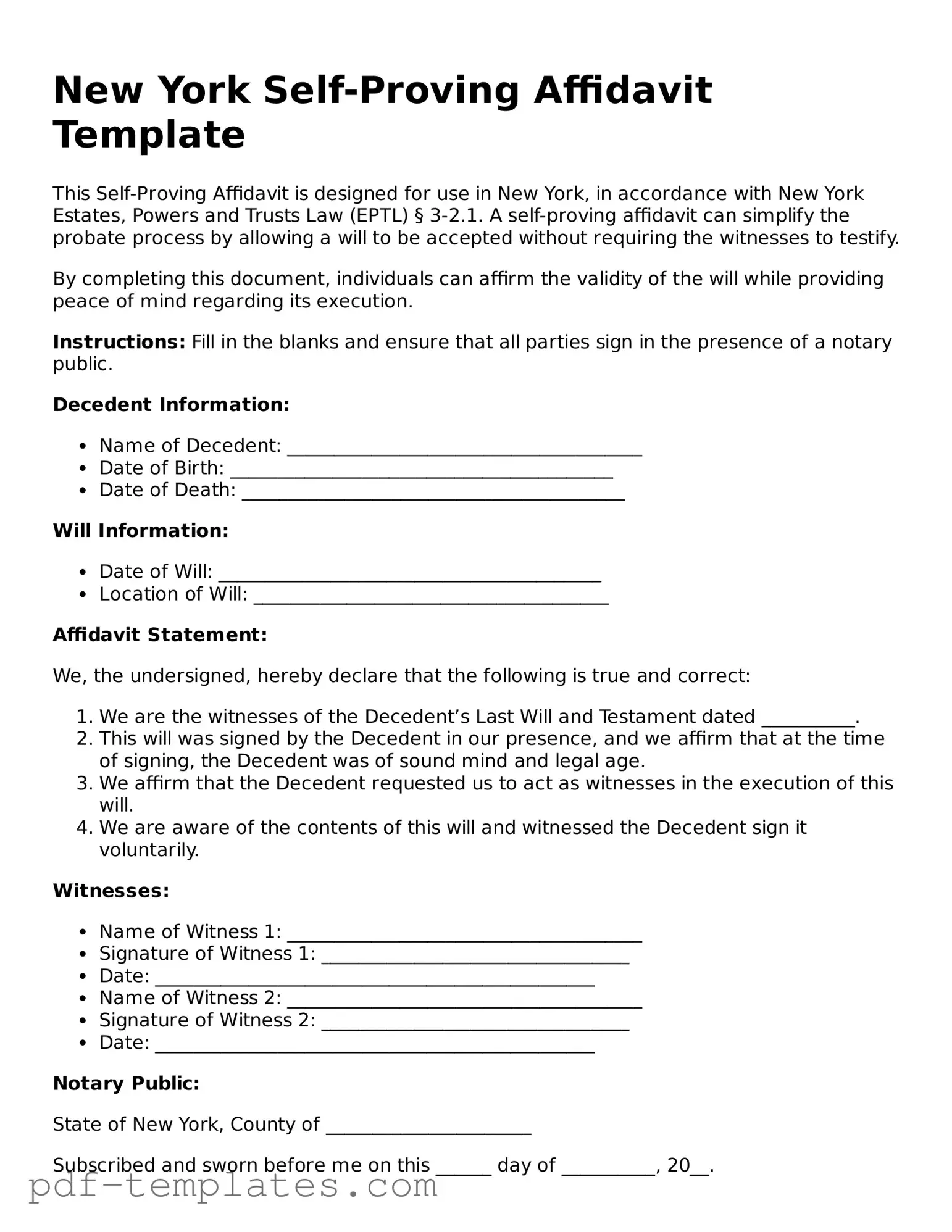Official Self-Proving Affidavit Template for New York State
The New York Self-Proving Affidavit form serves as a valuable legal document that allows a testator's will to be validated without the need for witnesses to appear in court. By incorporating this affidavit, individuals can streamline the probate process and enhance the authenticity of their last wishes. For those ready to take this important step, click the button below to fill out the form.
Customize Form Now
